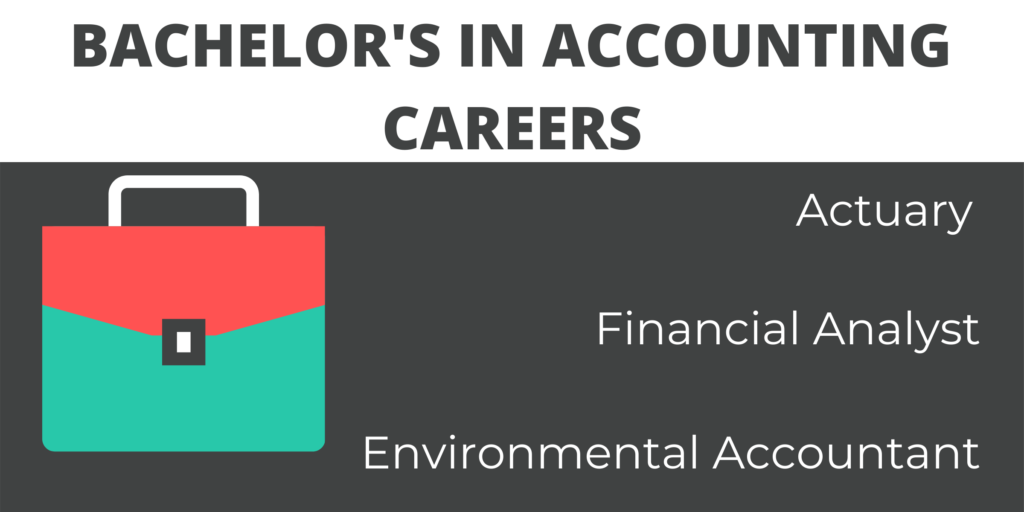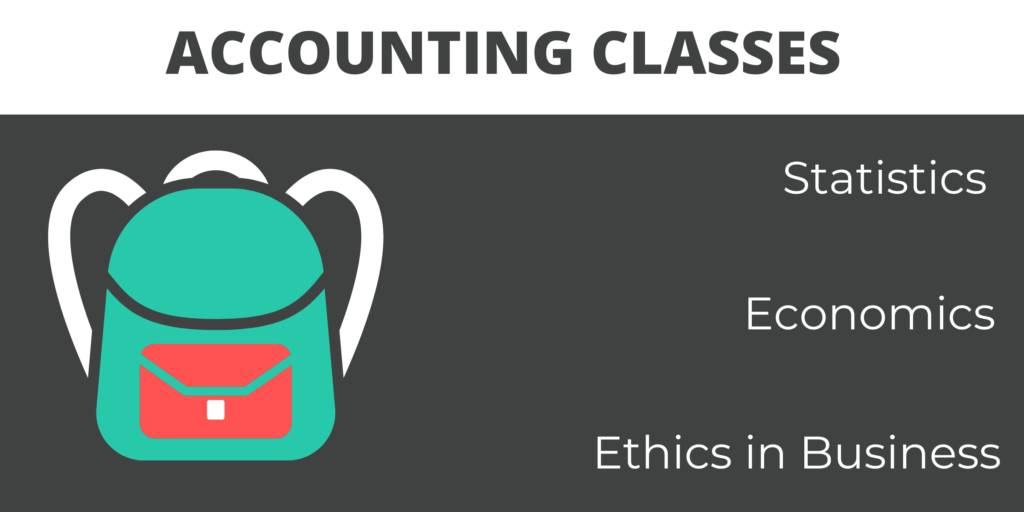Accountants monitor the financial health and fiscal viability of an organization in the same way that a doctor monitors the physical health of his or her patients. Budgeting, financial modeling and forecasting, and business strategy are all skills within the wheelhouse of professional accountants. Professional accounting can manifest into a variety of positions which differ in accordance with chosen professional focus and specialization.
Many accountants position themselves to thrive within a certain industry by specializing in a certain type of business or market, such as accountants who specialize in working with software development businesses, construction companies, or investment firms. Accountants also commonly find employment with accounting firms that provide all-in-one accounting services to clients.
The accounting profession is a detail-oriented one which requires a scientific mind and an aptitude for mathematics and statistical forecasting. Entry level positions within the job market might focus solely on formatic tasks such assisting clients in tax preparation and filings, while mid-to-upper level employment opportunities often focus on more specialization accounting work–such as providing expert consulting for business strategy within a given market, or providing financial advisement to correct for business inefficiencies.
Accountants and Certified Public Accountants

Another defining factor in an accountant’s career is whether they earn the one of the prominent accounting designations, of which there are three: Certified Internal Auditor (CIA), Certified Management Accountant (CMA), and the Certified Public Accountant (CPA), the most popular designation conferred after passing the Uniform Certified Public Accountant Examination.
A CPA license is required for an accountant to conduct accounting work in the public sector with individual clients or businesses. A CPA license is not required for accountants to work in corporate accounting–such as financial advisement, forecasting, or other in-house accounting work. The Certified Public Accountant Examination is a test developed by the American Institute of Certified Public Accountants (AICPA), and is meant to represent the ‘gold standard’ of quality in the CPA profession.
In other words, while all CPAs are accountants, not all accountants are CPAs. Most noticeably, CPAs are able to legally represent a business before the Internal Revenue Service (IRS) and thus is a highly sought-after designation for intervening in audits and other tax-related challenges. CPAs are also bound to a strict code of ethics which contributes to the prestige surrounding the CPA designation.
However, the CPA designation is typically earned through an exam after completing a Bachelor of Accounting degree program, or by completing the state-level education requirements through other means. For this reason, the path to the CPA designation is just one path of many available to graduates of a Bachelor of Accounting degree program. In this guide, we will explore all of the available paths and which paths lead to the greatest career outcomes.
For additional information on the various accounting designations consider these resources:
- WHAT CAN I DO WITH A DEGREE IN ACCOUNTING?
- WHAT IS THE DIFFERENCE BETWEEN AN ACCOUNTING CLERK AND AN ACCOUNTING ASSISTANT?
- WHAT DOES AN ACCOUNTING CONTROLLER DO?
- WHAT ARE THE TYPICAL DAILY DUTIES FOR AN ACCOUNTING CLERK?
- WHAT ARE THE TYPICAL DAILY DUTIES FOR AN ACCOUNTING CONTROLLER?
- WHAT ARE THE TYPICAL DUTIES FOR AN ACCOUNTING ASSISTANT?
- WHAT IS THE DIFFERENCE BETWEEN A BACHELOR’S DEGREE IN ACCOUNTING AND A MASTER’S DEGREE IN ACCOUNTING?
- WHAT IS THE DIFFERENCE BETWEEN A MASTER OF BUSINESS ADMINISTRATION DEGREE AND A MASTER OF ACCOUNTING DEGREE?
- WHAT IS THE DIFFERENCE BETWEEN AN ACCOUNTING DEGREE AND A BUSINESS DEGREE?
- WHAT IS THE DIFFERENCE BETWEEN AN ACCOUNTING DEGREE AND A FINANCE DEGREE?
- WHAT IS THE DIFFERENCE BETWEEN AN ACCOUNTING DEGREE AND A MATH DEGREE?
- WHAT IS THE DIFFERENCE BETWEEN AN ACCOUNTING DEGREE AND AN AUDITING DEGREE?
- WHAT IS THE DIFFERENCE BETWEEN AN ASSOCIATE’S DEGREE IN ACCOUNTING AND A BACHELOR’S DEGREE IN ACCOUNTING?
The Accounting Industry in 2021 and Beyond

Accounting as an industry has been an irrevocable necessity of business for as long as business has relied on financial transactions and even before. According to written historical records, accountants have played a crucial role in the development of civilizations as far back as ancient egypt where the accountant’s job was considered an almost divine professional responsibility.
Today the accounting industry is undergoing quite a bit of change and evolution. Most noticeably the influence of big data, automation technology, and information technology has been felt throughout all accounting markets. Big data refers to the massive influx of consumer and business information that has been gathered as a result of human interaction with the internet, big international brands, and software applications–all of which track consumer behavior (albeit to varying degrees of penetration).
Big data is an accountant’s dream, because the mountains of data provide more financial variables to track and more revelations to glean that might drive higher levels of business performance and profitability. Automation technology on the other hand is a double-edged sword–on one side of the coin, automation technology threatens to delegitimize certain accounting jobs that can be entirely automated without employing an accountant at all.
On the other side of the coin, automation technology is allowing tech-savvy accountants to take on workloads and responsibilities that were previously untenable. Accounting automation tech can automate large portions of an accountant’s daily workload, making the accountant more productive overall. Currently, an accountant using automation technology is much more productive and efficient than accounting automation tech on its own.
Information technology and data science are becoming increasingly intermingled with the accountancy profession. That is, as accountants are able to automate more of the busywork of their daily workload, they are able to allocate more time to the use of data tools and technology to dive deep into market information, seeking valuable market realizations that can inform better business practices and strategy.
For additional information on the accounting industry and job market, consider these resources:
- HIGHEST PAYING DEGREES IN ACCOUNTING – MAJORS & CAREERS
- WHAT AREAS OF ACCOUNTING DO I NEED TO STUDY TO BECOME A CPA?
- WHAT IS A TYPICAL SALARY FOR AN ACCOUNTING ASSISTANT?
- WHAT IS A TYPICAL SALARY FOR AN ACCOUNTING CLERK?
- WHAT IS A TYPICAL SALARY FOR AN ACCOUNTING CONTROLLER?
- WHAT ARE THE EASIEST DEGREES TO GET IN ACCOUNTING?
- WHAT ARE THE HIGHEST PAYING JOBS IN ACCOUNTING AND AUDITING?
- WHAT ARE THE HIGHEST PAYING JOBS WITH A MASTER’S DEGREE IN ACCOUNTING?
- WHAT ARE THE HIGHEST PAYING JOBS WITH AN ACCOUNTING DEGREE?
- WHAT ARE THE HIGHEST PAYING JOBS WITH AN ASSOCIATE’S DEGREE IN ACCOUNTING?
- WHAT IS THE SALARY POTENTIAL FOR SOMEONE WITH AN ACCOUNTING DEGREE?
- WHAT KIND OF GOVERNMENT JOBS CAN YOU GET WITH AN ACCOUNTING DEGREE?
What Does a Bachelor’s of Accounting Degree Program Offer?

Because of the impact of tangential industries of big data, automation tech, and IT/data science, an accountant’s career is defined by continuing education. Entry level employment as accountant will lead to work in the traditional role of tax preparation, budget reports, or payroll. To open the most doors to the greatest number of opportunities however, accountants should develop expertise in one of the aforementioned areas.
One of the best ways to begin developing this expertise is in a Bachelor of Accounting program that either directly offers a degree specialization, or offers the freedom for students to establish their own expertise through choosing targeted electives and other coursework that would confer the desired specialty.
A Bachelor of Accounting program–particularly the specialized programs–are taught by successful accounting professionals with professional networks that top-students can tap into. Many universities specifically facilitate such professional networks so that accounting students can take on high-end internships, or at the very least, so that they can graduate with a catalogue of high-value contacts. So in summation, a Bachelor of Accounting really offers three major benefits:
- The opportunity to build toward an accounting specialization that will open doors to new opportunities and new areas of the job market.
- The professional network facilitated by the university, program instructors, and alumni (that also opens the door to new opportunities).
- Fulfills many, if not all, of the requirements for taking an accounting designation exam such as the Uniform CPA Examination.
For additional resources on the various accounting education paths, consider these resources:
- WHAT KIND OF JOB CAN YOU GET WITH A DEGREE IN ACCOUNTING?
- WHAT KIND OF JOB CAN YOU GET WITH A DEGREE IN FINANCIAL ACCOUNTING?
- WHAT KIND OF JOB CAN YOU GET WITH A MASTER’S DEGREE IN ACCOUNTING?
- WHAT KIND OF JOB CAN YOU GET WITH AN ASSOCIATE’S DEGREE IN ACCOUNTING?
- WHAT NON-TAX JOBS CAN YOU DO WITH AN ACCOUNTING DEGREE?
- WHAT DEGREE DO PEOPLE WITH A JOB IN MANAGEMENT ACCOUNTING HAVE?
- WHAT DEGREE DO PEOPLE WITH A JOB IN PUBLIC ACCOUNTING HAVE?
- 50 TOP SCHOLARSHIPS FOR ACCOUNTING DEGREES
- WHAT IS THE BENEFIT OF AN ACCOUNTING DEGREE VS A BUSINESS DEGREE?
- WHAT IS THE BENEFIT OF AN ACCOUNTING DEGREE VS A FINANCE DEGREE?
- WHAT IS THE BENEFIT OF AN ACCOUNTING DEGREE VS A MATHEMATICS DEGREE?
- WHAT IS THE BENEFIT OF AN ACCOUNTING DEGREE VS AN ECONOMICS DEGREE?
- WHAT IS THE DEMAND FOR A DEGREE IN ACCOUNTING?
- WHAT IS THE DEMAND FOR A MASTER’S DEGREE IN ACCOUNTING?
- WHAT CLASSES WILL I HAVE TO TAKE FOR A DEGREE IN ACCOUNTING?
- WHAT CLASSES WILL I HAVE TO TAKE FOR A DEGREE IN FINANCIAL ACCOUNTING?
- WHAT CLASSES WILL I HAVE TO TAKE FOR A DEGREE IN MANAGERIAL ACCOUNTING?
- WHAT CLASSES WILL I HAVE TO TAKE FOR A DEGREE IN TAX ACCOUNTING?
- WHAT CLASSES WILL I HAVE TO TAKE FOR A MASTER OF BUSINESS ADMINISTRATION DEGREE IN ACCOUNTING?
- WHAT CLASSES WILL I TAKE FOR A DEGREE IN FORENSIC ACCOUNTING?
- WHAT DO I NEED TO KNOW ABOUT A DEGREE IN FORENSIC ACCOUNTING?
- WHERE CAN I WORK WITH A DEGREE IN FORENSIC ACCOUNTING?
Associate of Accounting Versus Bachelor of Accounting
Some professionals will want to begin work as an accountant as quickly and affordably as possible. For these professionals, an Associate of Accounting might be the best option because it allows for professionals to take on entry-level employment in the accounting job market in a short span of time. Many Associate of Accounting programs can be completed in just two years, and in some programs even less.
The made trade-off however is that virtually all state-level requirements for the CPA designation require at least a Bachelor’s level education. Noticeably the degree does not have to be specifically a Bachelor’s of Accounting, however that does help. Thus the trade-off is between deciding for quick and affordable access to the job market, and access to the CPA designation.
For professionals who are pursuing an accounting career as a career-change, it will be most efficient to leverage an existing Bachelor’s degree–either toward credits in an Associate of Accounting program or toward a Bachelor of Accounting program. There is no ‘right choice’ in this scenario, as the best choice will be the one that provides you with the level of preparation you need to meet your career goals.
For a more thorough examination of the various levels of accounting education, consider these resources:
- TOP 25 ONLINE BACHELOR’S DEGREE PROGRAMS IN ACCOUNTING
- TOP 10 ACCOUNTING DEGREE PROGRAMS
- TOP 25 ONLINE BACHELOR’S DEGREE PROGRAMS IN ACCOUNTING
- WHAT IS THE BENEFIT OF A BACHELOR’S IN ACCOUNTING DEGREE VS AN ASSOCIATE’S IN ACCOUNTING DEGREE?
- WHAT IS THE BENEFIT OF A MASTER’S IN ACCOUNTING DEGREE VS A BACHELOR’S IN ACCOUNTING DEGREE?
- WILL I RECEIVE A FINANCIAL BENEFIT WORTHY OF THE MONEY AND TIME TO GET A PHD IN ACCOUNTING?
- IF I GET AN ACCOUNTING JOB IN ANOTHER STATE, WILL MY EMPLOYER HELP ME LEARN THE TAX LAWS OF THAT STATE?
- WHAT ARE SOME OF THE MOST COMMONLY USED ACCOUNTING PROGRAMS I SHOULD BECOME FAMILIAR WITH?
- WILL I RECEIVE A FINANCIAL BENEFIT WORTHY OF THE MONEY AND TIME TO GET A MASTER’S IN ACCOUNTING?
- DO I NEED AN INTERNSHIP FOR AN ACCOUNTING DEGREE?
- HOW ADVANCED DOES MY DEGREE IN ACCOUNTING NEED TO BE TO BECOME A CPA?
- HOW ADVANCED DOES MY DEGREE IN ACCOUNTING NEED TO BE TO GET A GOOD JOB?
- HOW DO I PREPARE FOR AN ACCOUNTING DEGREE WHILE IN HIGH SCHOOL?
- HOW LONG DOES IT TAKE TO GET A DEGREE IN ACCOUNTING?
- HOW MUCH MATH IS REQUIRED FOR A DEGREE IN ACCOUNTING?
- HOW MUCH MATH IS REQUIRED FOR A MASTER’S DEGREE IN ACCOUNTING?
- WHAT ARE THE BENEFITS OF PURSUING A DEGREE IN ACCOUNTING?
- WHAT ARE THE BENEFITS OF PURSUING A MASTER’S DEGREE IN ACCOUNTING?
- WHAT ARE THE BENEFITS OF PURSUING AN ASSOCIATE’S DEGREE IN ACCOUNTING?
Promising Sectors of the Accounting Industry

- Retiring accounting managers and accounting firm partners
- Expansion of private companies into publicly traded stock market (IPOs)
- International tax law and global business regulations
- Cloud-accounting software and automation technology
- Accounting data science and business analytics
According to the Bureau of Labor Statistics (BLS), the Accounting & Auditing job market is growing at a rate of about 4%, which mirrors the national average rate of growth for all jobs in the American economy. Many industry experts had previously predicted greater growth, however automation technology has encroached on the availability of lower-end employment opportunities–because the most basic accounting jobs are the ones that can be automated by a skillful accountant.
There are certain sectors of the accounting industry that are growing to compensate for the loss of jobs at the entry-level. For instance, the retirement of ‘baby boomer’ accounting partners is creating more opportunities for high-end employment where accounting managers oversee finance departments or take on partnership roles overseeing entire companies.
And speaking of companies, when private companies expand into the publicly traded stock market there is a demand for CPAs to take on the role of financial reporting for newly christened ‘public’ companies. Specifically, the growth of Initial Public Offerings (IPOs) drives considerable growth in the area of financial reporting and market analysis.
Another promising vector of growth in the accounting industry is in the globalization of the finance industry. International companies require accounting experts to navigate the nuances of the various economies in which they do business. This involves mastering domestic, foreign, and international tax laws and regulations.
As mentioned above, another promising area of the accounting profession lies in the overlap between accounting and information technology. A large portion of working accountants report using cloud-accounting software, and a similarly large portion reports automating repetitive tasks in their daily workload. While there is some clash between the CPA code of ethics and automation technology, there is tremendous opportunity for accounting professionals who are able to tactfully use the industry’s best accounting software and automation technology–specifically in the area of business analytics and financial advisement.
6 Lucrative Accounting Jobs for Graduates with a Bachelor’s of Accounting
A Bachelor of Accounting degree typically requires four years of full-time education and a steep investment in the form of tuition fees. Given the cost of a Bachelor of Accounting degree, many professionals will appreciate the assurance that there are various paths to lucrative employment in the job market. Professional accountants with a Bachelor of Accounting can work towards finding employment in any of the following positions, however doing so might require demonstrating aptitude and success in internships and/or previous employment.
- Cost Account Manager – Average Salary: $124,000

Cost Account Managers are paid extremely well with experienced cost account managers making about $140,000. The reason for this sky-high compensation is the level of expertise and specialization required to take on this role effectively. Cost Account Managers are tasked with mastering the cost-benefit-analysis of a single product, determining the variables connected to the cost of producing the product and the variables connected to profit. As such these accounting specialists monitor market trends to identify opportunities to improve the cost-benefit-analysis.
These professionals often demonstrate success in the role of accounting manager before specializing in a specific product or market, as this role requires. Professionals interested in this position will need at least a Bachelor of Accounting degree with an educational background in business management, business administration, financial management, business analytics, and/or–most ideally–product development. A Bachelor of Accounting with a specialization in product development would be ideal.
- Accounting Manager – Average Salary: $107,000

Accounting managers are typically tasked with overseeing an organization’s financial department and manage one or multiple teams of finance professionals, including other accountants, CPAs, and auditors. Accounting managers usually distinguish themselves by specializing in industry or market in which they work. Those interested in finding work as an accounting manager will want to earn a Bachelor of Accounting degree with a specialization in management or business administration. Similarly, they will want to build toward professional specialization in a chosen market, so that they will have a claim to the expertise needed to manage and direct an accounting department.
- Corporate Controller – Average Salary: $94,000
While an accounting manager will be tasked with overseeing one or multiple finance departments, a corporate controller is tasked with overseeing all of the financial and accounting operations of an organization. Depending on the size of the organization these professionals can bring home astronomical salaries, however with a Bachelor’s of Accounting and some demonstrated success in the job market, one should be able to find employment as a corporate controller with a small-to-midsize company at the above-mentioned salary.
Accounting professionals interested in this type of work will need to become CPAs if they wish to work with public companies, which is where the most gainful employment is to be found. Otherwise, graduates of a Bachelor of Accounting program can find employment in-house with a smaller, private company.
- Senior Financial Analyst – Average Salary: $81,000
Financial Analysts work in virtually any industry. These professionals make up the bulk of finance departments and are typically tasked with conducting market research or financial performance analyses to develop insights and recommendations for more profitable or efficient business operations. Accounting professionals with a Bachelor of Accounting who can demonstrate aptitude in this role will be able to take on senior financial analyst positions, where they will take a more active role in business strategizing and management.
For this reason, perspectives of this position will want to establish experience working in managerial roles and advanced analytics. A Bachelor of Accounting with a specialization in business analytics or market research would function as ideal preparation for this role.
- Accounting Software Developer – Average Salary: $80,000
Accounting Software Development is a field of specialty that is implied in the name–these accounting professionals use their software development skills to create new software applications for accounting work. These professionals develop software at various levels of complexity, for both consumers and accounting professionals. An entry-level accounting software developer will need a background in both accounting and software development, though the software development skills will probably be most determinative of employment opportunities. Thus a Bachelor of Computer Science with a specialization or Associate’s in Accounting would be ideal.
- Assistant Controller – Average Salary: $78,000
Due to the prestige and high level of responsibility associated with the role of corporate controller, the best way to build toward employment in this capacity may be to first seek employment as an assistant controller, particularly for recent graduates of a Bachelor of Accounting program.
These accounting professionals assist the organization’s main corporate controller in completing daily responsibilities and carrying out the controller’s chosen financial strategy. Professionals interested in this position will want to build managerial and leadership experience within the context of accounting, business administration, financial management, and/or business analytics. A Bachelor of Accounting with a specialization in financial management would be ideal.
Carrie Morris
Author
Warren Dahl
Editor-in-Chief

